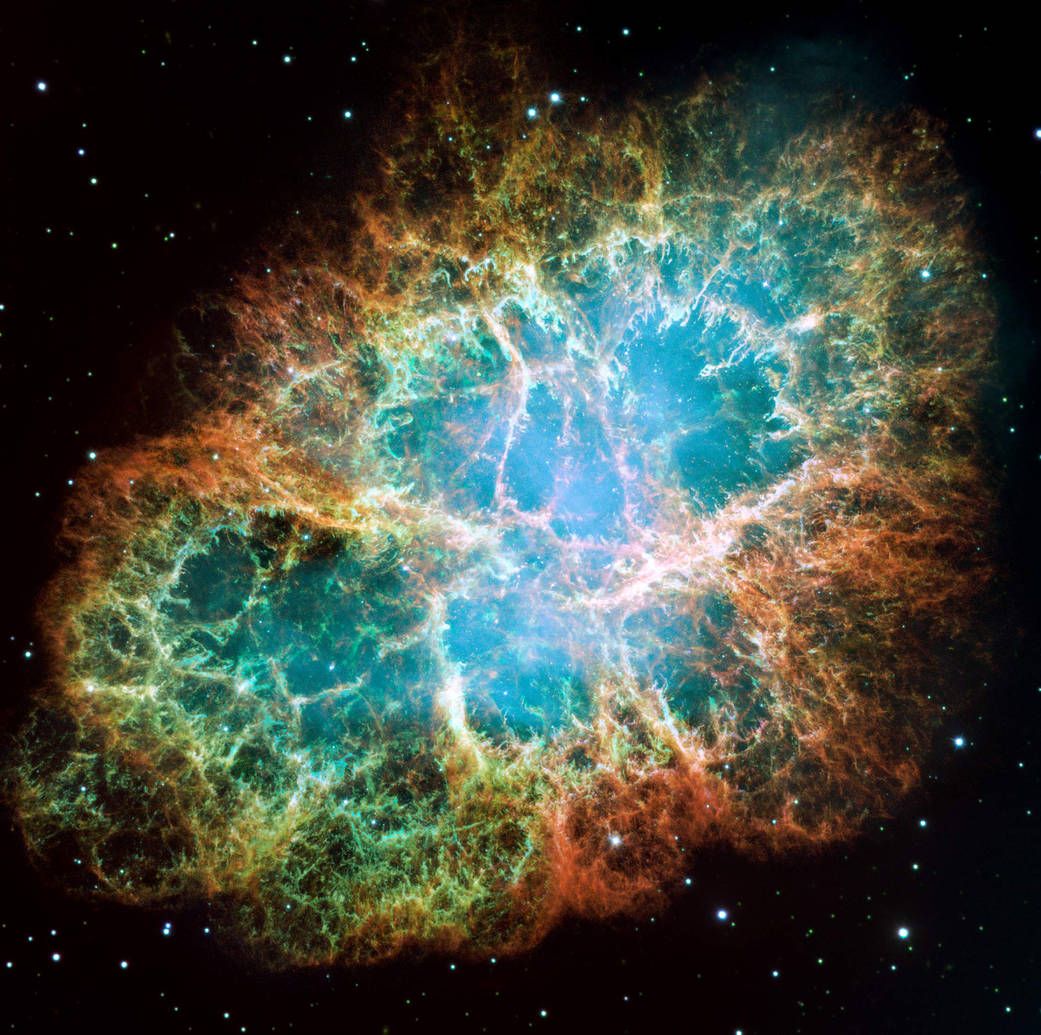
A team of researchers from the University of British Columbia, Canada, has proposed a radical new theory about the expansion of the universe. Scientists do not know exactly why the universe is expanding at an ever-accelerating pace, but the most popular theory is that this growth is being driven by dark energy, the theoretical force thought to make up 68 percent of the universe.
However, the University of British Columbia researchers have another theory—that quantum fluctuations of vacuum energy are responsible.
Scientists discovered the universe is expanding at an accelerating rate in 1998. Researchers analyzed the light from supernovae (exploding stars) and discovered the supernovae were moving away from each other at an ever increasing speed. They concluded the universe must be expanding at an accelerating rate.
The discovery led to the widely accepted theory that the universe is filled with dark energy, which is constantly pushing matter further and further away.
But this comes with problems. At present, there is a disconnect between our two best theories to explain the universe—quantum mechanics and Einstein's theory of general relativity. What we see on a quantum level cannot be explained by general relativity.
When we apply quantum mechanics to vacuum energy that exists throughout the universe it results in a huge density of energy and, because general relativity says this energy would have a strong gravitational effect, it would likely result in the universe exploding.
But the universe is still here, and expanding at a relatively slow rate. In a study published in the journal Physical Review D, Qingdi Wang and colleagues sought to solve this problem.
If we looked at the universe extremely close up, we would see space and time constantly fluctuating—rather than being static, they are always moving. In its study, the team shows how previous models failed to take into account that the universe is constantly moving.
They use the large density of vacuum energy but look at it on the quantum scale. In this, they show how space is fluctuating wildly, expanding and contracting all the time. However, in these oscillations, there is a very slight difference—meaning it is always expanding slightly more than it is contracting. The result? A universe that is expanding at an ever accelerating rate.
"This result suggests that there is no necessity to introduce the cosmological constant…or other forms of dark energy, which are required to have peculiar negative pressure, to explain the observed accelerating expansion of the universe," they conclude.
In an email interview with Newsweek, study co-author Bill Unruh says people will probably see the paper as controversial because it goes against the most widely accepted theory. "But we have been surprised by the positive reception it has received from the referee, the journal, and from the few people who have written to us," he says. "I myself was very skeptical for a long time, but believe it deserves its chance out there in the marketplace of ideas."
He says they hope to be able to test the theory by eventually finding the actual fluctuations of energy, or the local fluctuations in the expansion of the universe. However, he says this is "way beyond us at present so one would have to do indirect tests. And knowing what those are requires much more development of the theory. We are but on the first steps."
In terms of what it could mean for our understanding of the cosmos, Unruh says it means the speed of the universe's expansion will continue "forever."
"We will never run out of those vacuum fluctuations of energy," he says. "There may be some limit once the Hubble constant [related to the rate of expansion] becomes large enough, but that needs looking into. But since the immediate timescale is tens of billions of years, this is not a current worry."
Uncommon Knowledge
Newsweek is committed to challenging conventional wisdom and finding connections in the search for common ground.
Newsweek is committed to challenging conventional wisdom and finding connections in the search for common ground.
About the writer
Hannah Osborne is Nesweek's Science Editor, based in London, UK. Hannah joined Newsweek in 2017 from IBTimes UK. She is ... Read more
To read how Newsweek uses AI as a newsroom tool, Click here.








